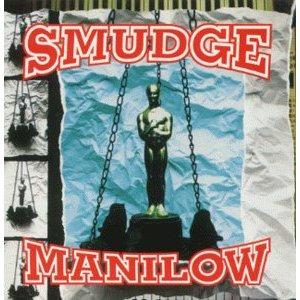In the world of Smudge, one has to assume a shaggily bedenimed state of mind. What once seemed refreshingly natural and pure – a music freed from the constraints of modern production – has now gained a warming period value. The sound of something we have lost; as raw as wild Fall and yet as accessible as early period REM, or any period Neil Young. Soaked in the rock of, say, Dinosaur Jnr, the shadowy elements of Nirvana and, most obviously, The Lemonheads, in ever sense a band closely related to Smudge. Indeed, it has often been noted (and occasionally unfairly) that Smudge owe their gentle notoriety to their famous liaisons with Evan Dando. It was Dando who, after fleeting critical storms and record company apathy following the comparative lack of success of The Lemonheads Lovey album, found himself in the Bohemian fringe of Sydney. Befriending the band at the centre of that talented though insular scene – Smudge – Dando became musically entwined. Following this, Smudge front man Tom Morgan continued to work more famously with Dando. It was an interlude that at once proved inspiring and restricting, for Dando casts a long shadow and, somewhere, deep in cultish darkness, lies the memory of this funny little Sydney band who owned a big vision and courageously went for that grand design. Although I have nut-shelled this history, here, it deserves the mention, for these two reissues are worthy of rediscovering on their own merits.
And so to that world of Smudge. Through this music you may gain a sense of the Sydney backwaters or a glimpse of Aussie underground, perhaps. (And after centring through the distant scenes of Sydney, Melbourne and Brisbane, this writer still believe it a lost continent, musically aloof from Europe and the USA.)
As such, Smudge does seem a curious place to wish to languish these days, for the art of filtering hook heavy songs through a level of musicality that one might kindly refer to as ‘impassioned’ is now rather compartmentalised. And there is no doubt that we sit in a genre we can only refer to as ‘antique grunge’, a hard times power genre for ragged minds and bodies. Take these two perplexing reissues: Manilow, the band’s eager debut album, and Real McCoy, Wrong Sinatra, the slightly buffed later affair. Just to compare the two is instantly intriguing. For Manilow is all heart and fired up soul… a strangely sexual album where the simplistic purity of am impressive collection of melodies and shunted along with reckless abandon. Those new to Smudge will have to trudge through at least three play-throughs before the true beauty begins to rise. There is an irony here. The low production techniques serve to distance the music. On first play through, a mashed delicacy… indeed a sound so delicately captured by the bands name: a smudged attack, blurred vision, misty evocations. But once beyond that initiation, the hooks sink in and the rewards become flickeringly visible. Manilow provides a thrusting 21 song attack of Ramose style smash and grab. That said, the big ideas within their embryonic sound tend to stretch across several songs. Even in 1994, when the album initially appeared on Half a Cow Records, and with Seattle heavy in the air, this proved an unlikely diversion. If you can accept the raw and often muddied attack, it will prove hugely rewarding. Less so, perhaps, are the acoustic additions – demos from Tom Morgan – which seem perfunctory and an unnecessary softening of a spirited set.
1998’s Real McCoy, Wrong Sinatra, does not quite contain the same charm. By now a twin guitar attack had spiced the basics, but where a more piercing musicality had evolved, the sheer weight of ideas had lessened. To some, the result would certainly seem more coherent. There are also moments here – ‘Hot Potato’ and ‘Real McCoy’ certainly lead the pack – that might have promised greater success on an international level, but the higher grade production strangely dilutes the glorious naiveté that makes Manilow such a worthwhile place to visit. Even the accompanying live album, which blurs the attack and leaves the listener feeling as though a gallon of amber nectar has profoundly settled on the senses, still fails to build sufficiently on the debut album.
And that is where I will occasionally revisit. It is a place, a feel, an emotive room that escaped so many of us, back in the mid-nineties. In Britain at least, our heads were in a different corner. What a pity. Smudge are the sound of a lost Australian underground. But on Manilow in particular, we find the briefest glimpse, and only that, of something else entirely.


